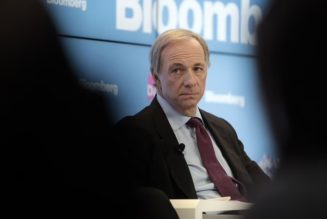Economy
Collateral-backed loans increase 30pc
Friday June 30 2023
The number of loans issued against property, furniture, cars, crops and home electronic items and livestock has jumped 29.6 percent in the 11 months to May. FILE PHOTO | SHUTTERSTOCK
The number of loans issued against property, furniture, cars, crops and home electronic items and livestock has jumped 29.6 percent in the 11 months to May, indicating an increased appetite for credit amid heightened economic pressures.
Movable Property Security Rights notices – notices lodged by banks and microfinance to secure the interest of collateral to issue loans — were recorded at 153,176 in the 11 months to May, surpassing 118,157 notices lodged in the 12 months to June 2022, data from Companies Registry shows.
Read: Sh540bn bad loans pile blots bank profits
The notices increased by 42.2 percent compared to 107,754 in the 11 months to May 2022.
Banks, microfinance, individuals and other secured creditors are required to register personal assets such as television, cows, maize in the farms, stock in a business premise as collateral under an e-business registry, and Business Registration Service as a way of securing interest before issuing the loan and gaining priority over other creditors.
The number of searches made by the creditors before the registration of those assets was recorded at 21,426 over the period, about 1,728 less than 23,154 in the year to June 2022.
The registrar says this implies an increasing interest in the use of movable properties in access to loans as analysts tie the increase to the need for credit amid a recovering business cycle.
“Demand for loans has always been there, but the issue is always access and cost. Coming from the pandemic period and election period, we are moving to a recovery hence the demand for credit,” said AIB-AXYS Africa research analyst Solomon Kariuki.
The increase comes amid the demand for credit by the private sector as micro, small and medium enterprises and households turn to commercial banks and microfinance institutions to support working capital and finance their purchases and expenses.
The surging inflation as prices of food and fuel go up has affected businesses’ revenues and shrunk households’ budgets who struggle to meet daily to daily expenses.
The economy has sustained the growing demand for loans with growth in private sector credit growth hitting a new six-month high of 13.2 percent in April and May from 11.6 percent in March.
This is despite central bank rate (CBR) hikes and high non-performing loans in banks.
According to the Central Bank of Kenya (CBK), the increase has been due to the issuance of new loans to manufacturing, trade, real estate, transport and communication sectors.
The extended growth of private sector credit however sits against a rising interest rates environment characterised by a runaway inflation rate and an upward adjustment to the benchmark lending rate by the CBK.
CBK has further tightened monetary policy to tame the inflationary pressures by increasing CBR to 10.50 percent in the recent monetary policy committee on June 26 from 9.50 percent expected to control the money supply in the economy.
Higher interest rates mean consumers will spend more to service their loans.
The cash-strapped consumers in the economy have piled more pressure on the banking sector’s non-performing loans (NPLs) with customers expected to face difficulties in repaying loans at steeper rates.
The stock of bad loans increased for the third straight month to hit a record Sh540.8 billion in March and extended their share in the total loan book to a 10-month high.
MPSR Act 2017 protects lenders using personal assets in the event of default.
Read: Use of shares as loan security drops further to 45pc
The lodge of the notice acts as public notice to any other entity interested in the collateral, showing that there is a prior interest and if they choose to lend against the same collateral, they will become second or third in priority in the event of default.
The notice includes details such as the guarantor or owner of the asset, the borrower, the period of effectiveness of the loan and the amount secured.








